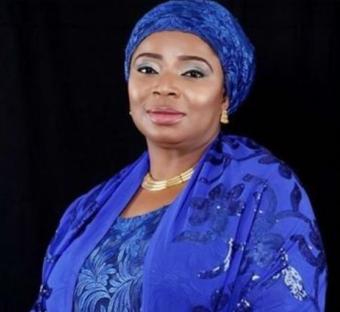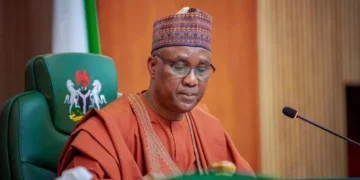The Human Rights Writers Association of Nigeria (HURIWA) is urging an investigation into the activities of the United Nations (UN), pointing to concerns about alleged policy violations involving senior staff members, particularly the case of Rabiatu Sageer.
In a statement released by Comrade Emmanuel Onwubiko, the National Coordinator of HURIWA, the organization expressed the need for scrutiny into the alleged high-level corruption within the UN.
Onwubiko noted that such allegations, if proven credible, could significantly damage the credibility of the global institution.
Referring to the case of Dr. Sageer, a senior officer of the United Nations Population Fund (UNFPA), Onwubiko noted that the recent BBC documentary, “The Whistleblowers: Inside the UN,” raised concerns about a culture of impunity within the UN.
The documentary highlighted instances where whistleblowers reporting misconduct were allegedly marginalized, penalized, or dismissed.
Dr. Sageer is accused of accepting payments from the Nigerian government for her participation in Hajj missions organised by the government in 2018 and 2019. The alleged acceptance of payments raises questions about a possible violation of UN policies, particularly regarding outside employment and acceptance of remuneration from governments.
The group said, “Documents show that Dr. Sageer, who was providing medical services as part of the government’s medical team during these missions, allegedly received 800 Saudi Riyal (SR) per trip as payment for her services.
“Dr. Sageer’s alleged actions, if established to be true after a thorough investigation, seem to be in violation of multiple UN policies, including regulations on outside employment and acceptance of gifts or remuneration from governments.
“Specifically, UN policy ST/AI/2000/13, Section 3, prohibits staff from engaging in any outside occupation or employment, remunerated or not, without the approval of the Secretary-General. Similarly, UN policy ST/SGB/2018/1 (j) and (m) prohibit staff from accepting any honour, decoration, favour, gift, or remuneration from any government if it poses a conflict of interest.”
HURIWA said that the UN’s commitment to maintaining high standards of conduct, integrity, and ethical behavior is at stake, and there are growing calls for a comprehensive investigation into the organization’s activities.
The organization urged the UN to address the allegations promptly to regain trust and uphold its promise of ethical conduct and integrity.
“Despite these regulations, allegations have been made that senior management within the UN may be protecting Dr. Sageer, raising concerns about a possible cover-up. This, coupled with the allegations presented in the BBC documentary, have led to growing calls for a comprehensive investigation into the UN’s activities,” HURIWA added.
“The UN has long prided itself on its commitment to maintaining the highest standards of conduct, integrity, and ethical behaviour. However, these recent allegations suggest a troubling double standard where senior staff members may be shielded from the consequences of their actions, while other employees are penalised based on mere rumours.
“As the world’s premier international organisation, the UN cannot afford to let these allegations go unanswered. It must take decisive action to investigate and address these issues. Only by doing so can it regain the trust of its employees and the global community it serves.”
While the UN has yet to respond to the allegations against Dr. Sageer, HURIWA stressed the importance of transparency, accountability, and the need for the UN to live up to its commitment to the highest standards of ethical conduct.
HURIWA challenged the UN Country office in Nigeria to investigate the allegations and take appropriate action if verified.
“The world is watching, and it’s time for the UN to live up to its promise of upholding the highest standards of ethical conduct and integrity just as HURIWA is challenging the UN Country office in Nigeria to probe these allegations and act accordingly if verified,” HURIWA said.











